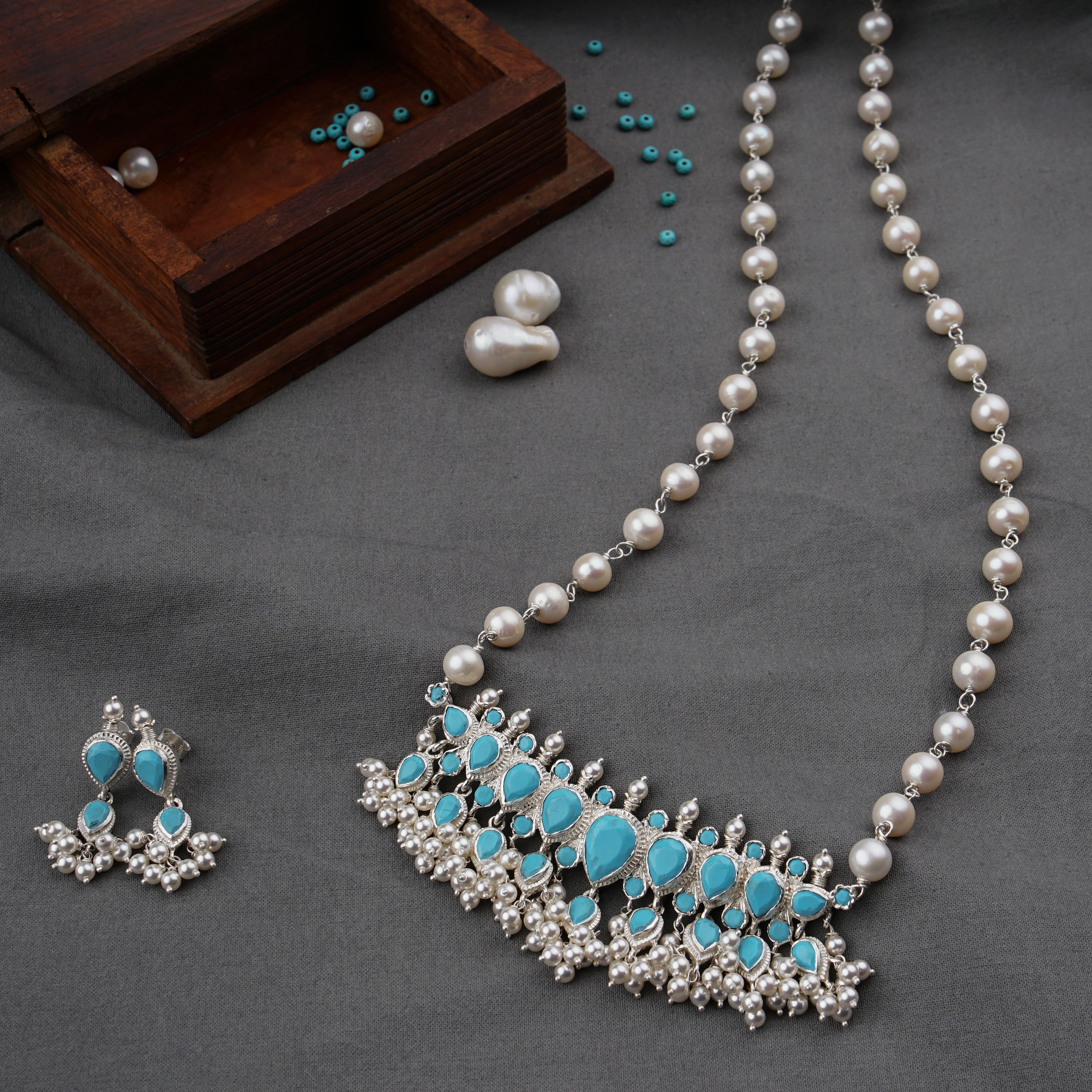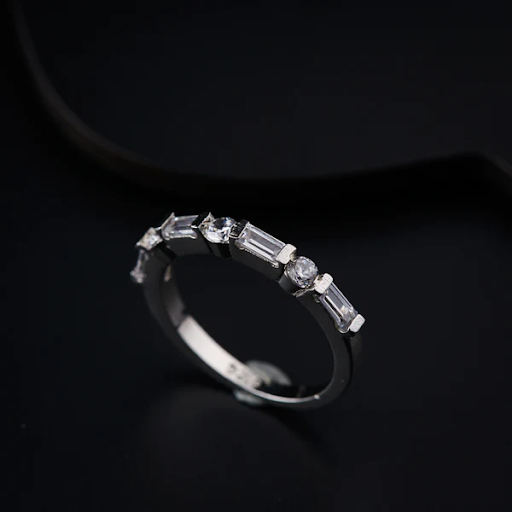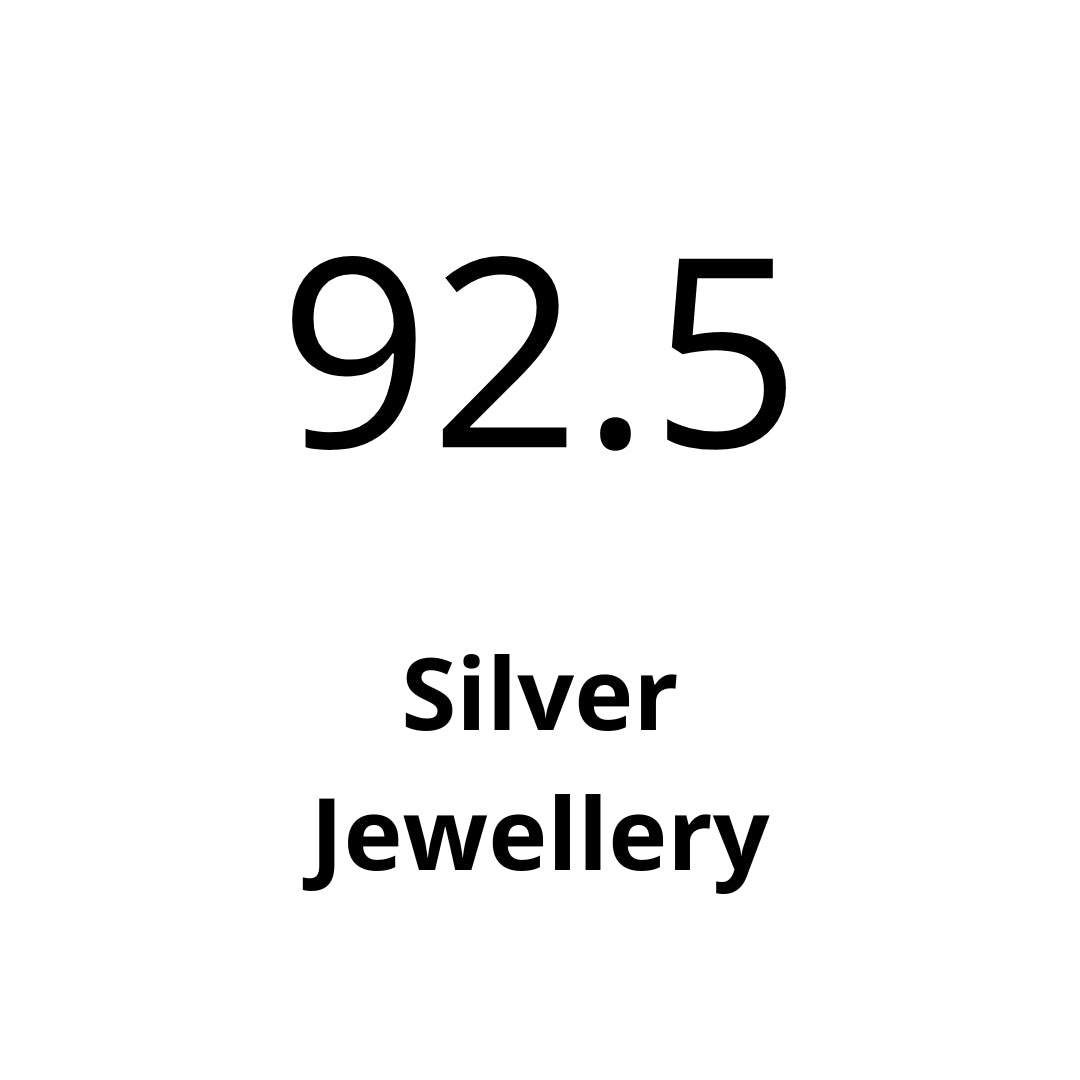
Why Natural Stones Shine Brighter in Silver Jewellery than Lab-Made Stones
Handmade silver jewellery with precious stones is the perfect way to add a touch of elegance to any outfit. When it comes to choosing between natural and lab-made stones, there are pros and cons for each option. We'll explore both types of stones in handmade silver jewellery, so you can make an informed decision based on your preferences and values.
Natural or Lab-made?
When it comes to handmade silver jewellery, the choice between lab-made and natural stones can be a tough one. While lab-made stones are often more affordable and readily available, natural stones have their own unique qualities that make them worth considering. In terms of durability, natural stones tend to hold up better over time due to their solid composition and lack of chemical treatments. However, lab-made stones can offer a wider variety of colors and cuts at a lower cost.
Cost is another important factor when deciding between lab-made and natural stones in handmade silver jewellery. Lab-made options are typically less expensive than their naturally occurring counterparts due to the manufacturing process being controlled by humans instead of nature. This means that they can be easily replicated with fewer resources used overall.
Appearance also plays a significant role in determining which type of stone is best for your handmade silver jewellery piece. Natural stones come in an array of unique shades and patterns that cannot be replicated artificially, making each piece truly one-of-a-kind. On the other hand, lab-made options offer greater consistency in color and cut for those who prefer a more uniform look.
Ultimately, the decision between using lab-made or natural stones depends on personal preferences such as budget constraints or style choices when crafting elegant jewelry pieces by hand with care.
Durability
Lab-made stones boast greater durability than natural stones, as they are not prone to chipping or cracking. However, it is important to note that the durability of a stone also depends on its type, whether natural or lab-made. While some may prefer the unique imperfections of natural stones in their handmade silver jewellery pieces, others may opt for the longevity and resilience offered by lab-made alternatives. Ultimately, when considering which type of stone to use in your jewellery designs, it is essential to weigh up both the practicalities and aesthetic qualities each option brings.
Cost
Lab-made stones are generally less expensive than natural ones, but the cost may vary depending on the rarity and quality of both types of stones. It's important to note that some customers prefer to pay for the authenticity and beauty of natural stones rather than opt for cheaper alternatives. Here are some factors that affect the cost:
- Rarity: The rarer a stone is, whether lab-made or natural, the higher its cost.
- Quality: High-quality lab-made stones can be more expensive than lower-quality natural ones.
- Size: Larger stones regardless of type will always be more costly.
When it comes to choosing between lab-made vs. natural stones in handmade silver jewellery, understanding how pricing works can help you make an informed decision based on your preferences and budget.
Appearance
When it comes to the appearance of natural vs lab-made stones in handmade silver jewellery, there are pros and cons to each. While natural stones offer unique variations in color and pattern that cannot be replicated by lab-made ones, lab-grown gems can be produced in consistent shapes, sizes, colors, and clarity levels that might not be possible with nature's unpredictable patterns. However, both types can look stunning when set in handmade silver jewellery; it ultimately depends on personal preference.
For those who value the organic beauty of raw materials and appreciate one-of-a-kind pieces of jewellery, natural stones may be the way to go. On the other hand, if you're looking for a more uniform aesthetic or need precise specifications for a particular design project - such as matching earrings or creating multiple identical pieces - then lab-created gems might provide a better solution. At the end of the day though, whether you choose natural or man-made is entirely up to your own taste and style preferences!
Conclusion
When it comes to choosing between lab-made and natural stones for handmade silver jewellery, there are pros and cons to consider. While lab-made stones can offer affordability and consistency in appearance, they lack the unique characteristics and value of natural stones. On the other hand, natural stones may come with a higher price tag but offer unmatched beauty and rarity that make them worth the investment.
Ultimately, the choice between lab-made or natural stones depends on personal preference, budget and individual style. Whether you opt for affordable consistency or rare uniqueness in your jewellery pieces; both options have their strengths as well as some drawbacks that should be weighed before making a decision. Whatever your choice may be however, remember that quality craftsmanship is key to creating timeless pieces of handmade silver jewellery that will stand out for years to come.
How can I tell if a natural stone in silver jewellery is genuine?
As a fashion-conscious woman who appreciates handmade silver jewellery, it's important to ensure that the natural stones in your jewellery are genuine. Here are a few tips to help you identify if a stone is real:
- Conduct a visual inspection: Natural stones have unique imperfections and variations that are absent in lab-made stones. Inspect the stone closely for any uneven colors, inclusions, or blemishes that may indicate it is a natural stone.
- Check the weight: Natural stones are typically heavier than lab-made ones due to their composition. If the stone feels unnaturally light, it may be synthetic.
- Conduct a scratch test: Most natural stones are harder than lab-made ones, so you can conduct a simple scratch test to determine if the stone is genuine. Use a small piece of unglazed ceramic tile and try to scratch the surface of the stone. If it leaves a scratch, it is likely a natural stone.
- Ask a professional: If you're still unsure, seek the opinion of a professional jeweler or gemologist who can confirm the authenticity of the stone.
By following these tips, you can ensure that the natural stones in your handmade silver jewelry are genuine and of the highest quality. Remember, natural stones not only enhance the beauty of the jewelry but also hold unique energies and meanings that cannot be replicated by lab-made stones.

What types of natural stones are used in silver jewellery?
Silver jewellery has always been a popular choice for women who appreciate elegance and sophistication. Natural stones are often used in these pieces, as they add a touch of glamour and uniqueness. Here are some of the most commonly used natural stones in silver jewellery:
- Turquoise - This beautiful blue-green stone has been used for centuries in Native American jewellery. It is believed to have a calming effect on the wearer and is often used in bohemian-inspired designs.
- Amethyst - This violet-colored stone is said to have healing properties and is often used in spiritual jewellery. It looks stunning in silver settings and is a popular choice for rings, necklaces, and bracelets.
- Garnet - This deep red stone is often used as a symbol of love and passion. It is also believed to have protective qualities and is often used in talismans and amulets.
- Citrine - This yellow stone is said to bring abundance and prosperity into the wearer's life. It looks stunning in silver settings and is often used in bohemian-inspired designs.
- Moonstone - This iridescent stone is said to have a calming effect on the wearer and is often used in spiritual jewellery. It looks stunning in silver settings and is a popular choice for rings, necklaces, and bracelets.
These are just a few examples of the many natural stones that are used in silver jewellery. Each stone has its own unique properties and symbolism, making them a meaningful addition to any jewellery collection.
Are there different cuts of natural stones used in silver jewellery?
Yes, there are various cuts of natural stones that are used in silver jewellery. The cut of a stone refers to the shape and style of the stone, which can greatly affect its appearance and value. Some popular cuts of natural stones used in silver jewellery include:
- Round cut: This is a classic and timeless cut that is often used for gemstones like diamonds and sapphires. It features a circular shape with 58 facets that help to maximize the stone's brilliance and sparkle.
- Princess cut: This is a square or rectangular cut that is popular for diamonds and other precious gemstones. It features pointed corners and a pyramid-like shape that creates a stunning sparkle and shine.
- Oval cut: This cut features a longer and more elongated shape that is great for highlighting the natural beauty and color of a gemstone. It is often used for stones like amethyst, topaz, and citrine.
- Pear cut: This cut features a teardrop shape that is both elegant and unique. It is often used for diamonds, opals, and other precious stones.
- Cushion cut: This cut features a square or rectangular shape with rounded corners that creates a soft and romantic look. It is often used for gemstones like emeralds, rubies, and sapphires.
Overall, the cut of a natural stone can greatly impact its beauty and value.
Are natural stones used in silver jewellery more expensive than other materials?
It depends on the type of natural stone and the quality of silver used in the jewellery. While some natural stones like diamonds or emeralds can be quite expensive, there are many other beautiful and less expensive options available such as turquoise, amethyst, or citrine. On the other hand, lab-made stones may be cheaper, but they lack the uniqueness and authenticity that natural stones provide. It is important to note that the value of natural stone jewellery goes beyond just the cost, as they hold sentimental and cultural significance as well. And when paired with high-quality silver, natural stone jewellery can make a truly timeless and elegant statement. So, while natural stone jewellery may not always be the most affordable option, the investment in their beauty and meaning is certainly worth considering.

Are natural stones in silver jewellery durable?
Yes, natural stones used in silver jewellery are durable. In fact, natural stones are known for their durability and longevity. They are formed through natural processes that take millions of years, resulting in stones that are strong and resistant to wear and tear. Natural stones are also less likely to scratch or chip compared to lab-made stones.
However, it's important to note that the durability of natural stones depends on several factors such as the type of stone, how it's cut, and how it's set in the jewellery. For example, softer stones like opals and pearls may require more care and maintenance to prevent damage.
Overall, natural stones are a great choice for silver jewellery as they not only offer durability but also unique and beautiful variations in color and pattern. They are a testament to the beauty of nature and add a touch of elegance and sophistication to any outfit.
What is the best way to care for natural stones in silver jewellery?
When it comes to caring for your silver jewellery with natural stones, it's important to follow a few simple guidelines to keep them looking their best for years to come. Natural stones, such as turquoise, amethyst, and garnet, are delicate and require special care and attention to prevent damage.
First and foremost, it's important to store your silver jewellery with natural stones in a cool, dry place. This will help prevent any moisture or humidity from damaging the stones or causing them to become dull or discoloured. Additionally, be sure to keep your jewellery away from direct sunlight, as this can cause fading or discolouration in some stones.
When it comes to cleaning your silver jewellery, it's best to avoid harsh chemicals or abrasive cleaners, as these can damage the natural stones. Instead, use a soft, damp cloth to gently clean the silver and stones, taking care to avoid any areas with delicate or intricate detailing. You can also use a soft-bristled toothbrush to gently clean any hard-to-reach areas, being careful not to scratch the stones.
If your natural stone jewellery needs a deeper clean, you can use a solution of mild soap and warm water to gently clean the stones. Be sure to rinse thoroughly with clean water and dry with a soft cloth before storing.
Finally, it's important to wear your natural stone silver jewellery with care. Avoid wearing it during physical activities or in situations where it may come into contact with harsh chemicals or abrasive surfaces.









1 comment
Accessorize your outfit with our beautiful,oxidized, classic,festive, traditional , vintage and ethnic jewellery.try our unique collection of oxidized danglers, elegant studs, handprinted earrings, peacock design earrings, choker, hasli, festive neck pieces, party wear artificial jewellery, traditional jhumkas, vintage kadas, bangles, bracelet,rings, combo sets and many more jewelry pieces that designed to make a bold statement.
Shop Now And Get Best Offers At Our Online Store.
https://theparamsundarii.com/
kajal
Leave a comment
This site is protected by hCaptcha and the hCaptcha Privacy Policy and Terms of Service apply.